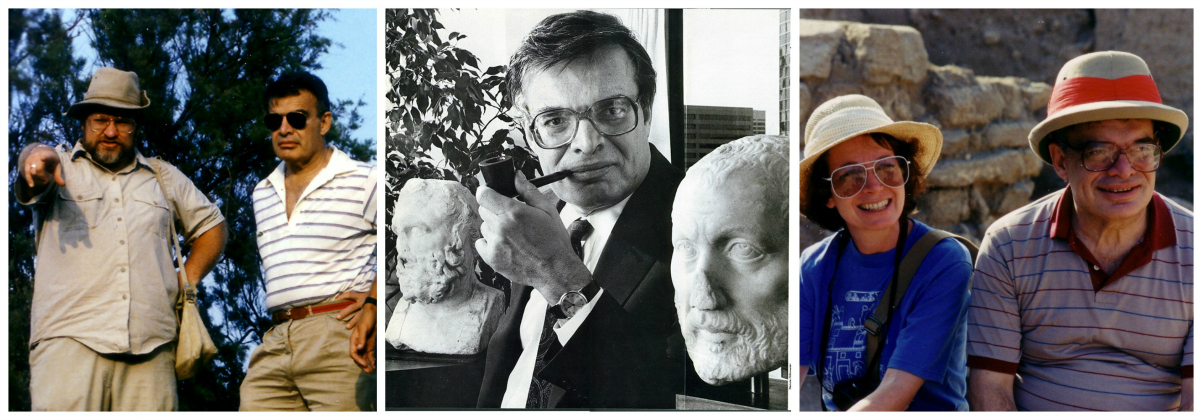Our Story

(Left) Archaeologist Lawrence Stager & Leon Levy; (Center) Leon Levy – Photo by Danuta Otfinowski; (Right) Shelby White and Leon Levy
Our Story
The Leon Levy Foundation was established from the Estate of Leon Levy in 2004.
In his will, Leon named two Founding Trustees: his wife, Shelby White, and his friend and esteemed architectural historian, Elizabeth Moynihan. Together Shelby and Liz created a set of programs and initiatives to continue and build upon Leon’s philanthropic legacy, informed by their own passions and expertise. They identified five broad categories – ancient world, arts and humanities, human rights, Jewish culture, nature and gardens, and neuroscience – which remain the Foundation’s focus areas more than two decades later.
In investing, Leon thought it was important to take a long-range view. He liked to find and work with smart people; he would often act on instinct and was never afraid to take a risk based on his intuition. These principles became the hallmarks of the Foundation’s giving.
To date, the Foundation has made grants totaling over $600 million.
Leon Levy
Leon Levy (1925-2003) was, to quote Forbes magazine, a “Wall Street investment genius and prolific philanthropist” who helped create both mutual funds and hedge funds.
As a young man, he was close to his father, the economic analyst Jerome Levy (1882 – 1967), who strongly influenced his son’s career and values. “Dad did not view economics as a way to make money, but as a way to improve society,” Leon once remembered, explaining a fundamental belief he shared.
Leon’s experience as an enlisted soldier in the U.S. Army serving during the occupation of Germany following World War II made a lasting impression. Deeply patriotic, he believed in a democratic, just and equitable society.
As an undergraduate at The City College of New York, Leon’s favorite course was abnormal psychology, and he always maintained a keen interest in the brain. He was also an avid student of history and believed that the liberal arts prepared one to enjoy life, as well as contribute to society.
Leon spent his professional life on Wall Street, starting out as a research analyst. Within three years, he was the youngest partner at Oppenheimer & Co. During the next five decades, he became one of the most innovative and influential figures in the financial world.
Leon did not turn to philanthropy at the end of his life; from the start, he was a generous patron of the arts and a benefactor of a wide range of causes and institutions. Leon was guided by a boundless curiosity, optimism, and a desire to see people and ideas reach their full potential.
All we can do is try to leave a legacy of good works.
